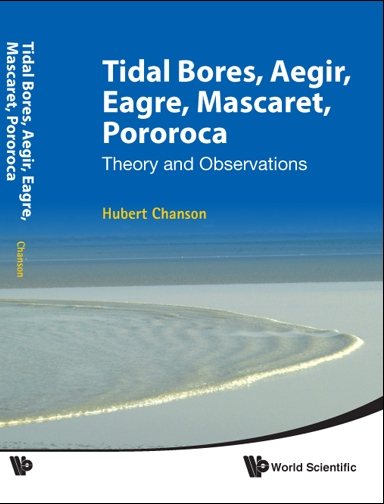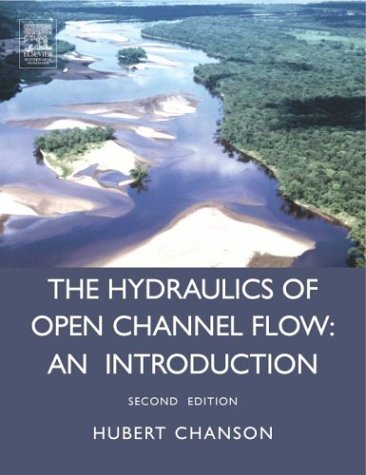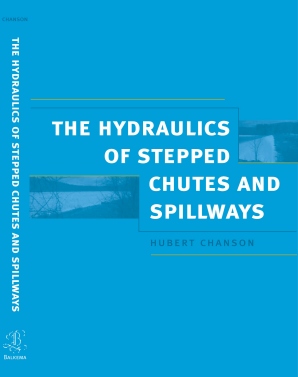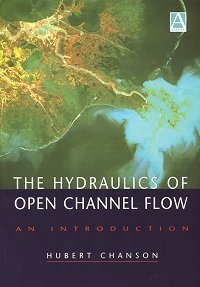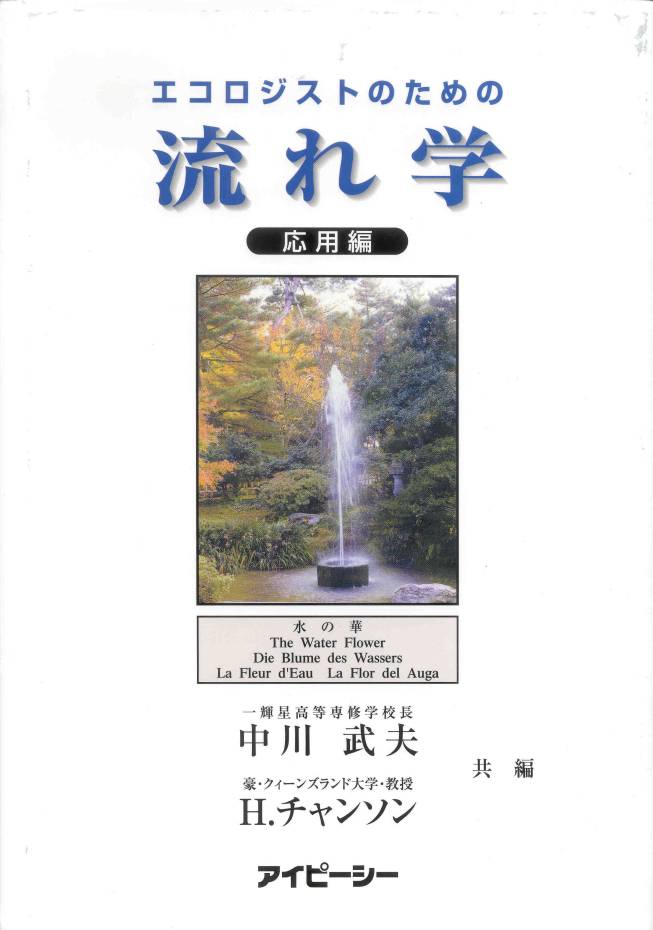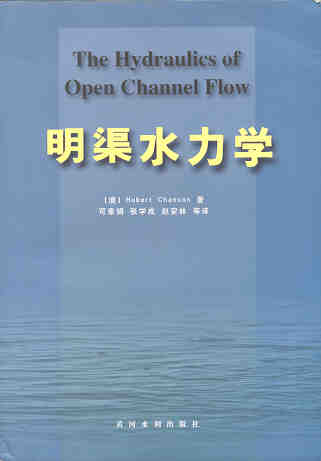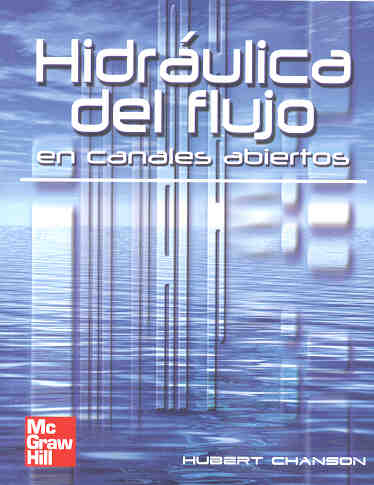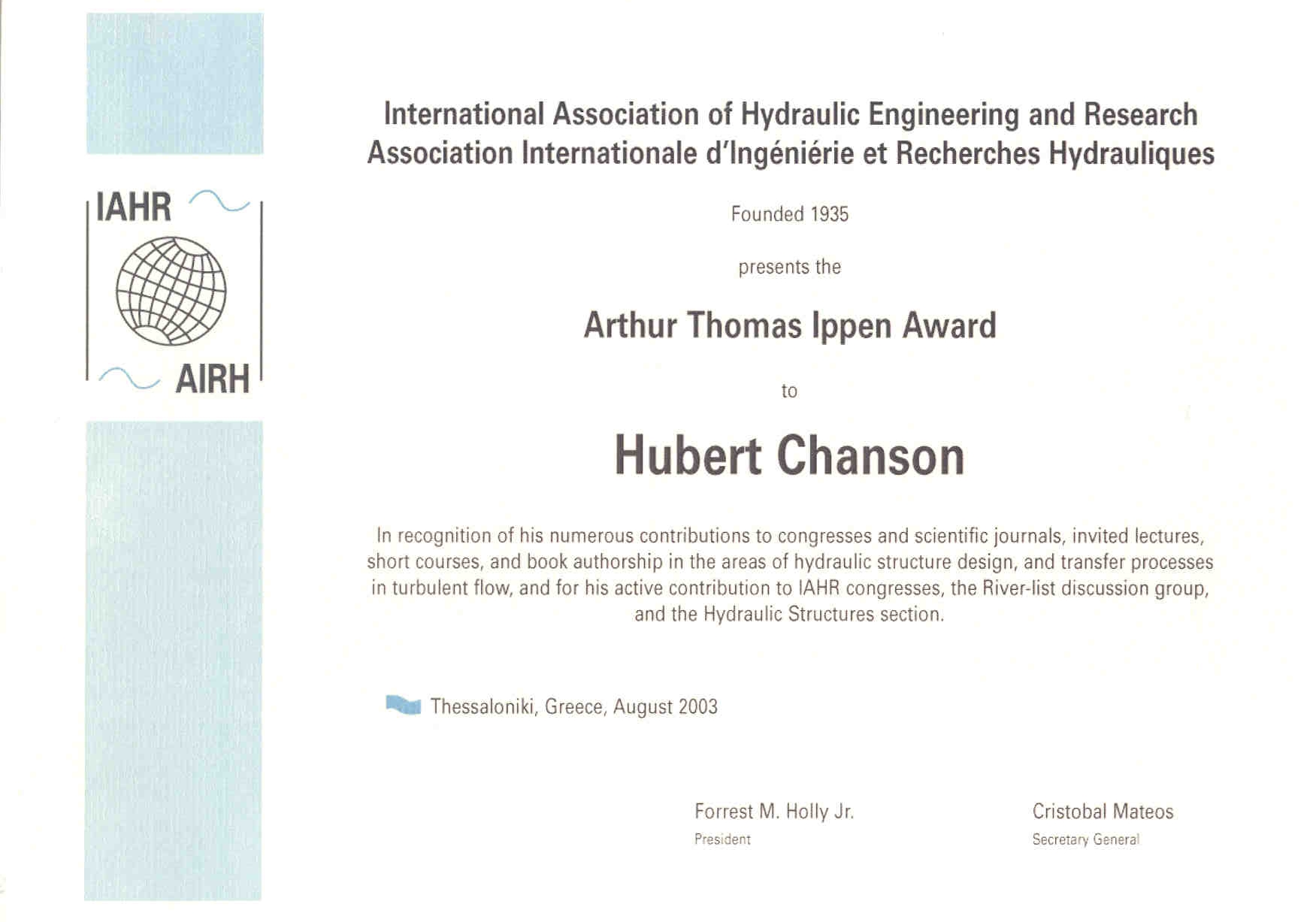CHANSON,
H. (2009). "Applied Hydrodynamics: An Introduction to Ideal and
Real Fluid Flows." CRC Press, Taylor & Francis
Group, Leiden, The Netherlands, 478 pages (ISBN: 978-0-415-49271-3
(Hardback); 978-0-203-87626-8 (eBook))
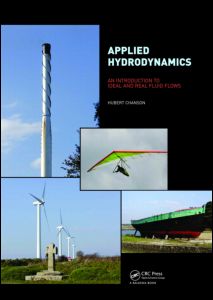 Author's
website : http://www.uq.edu.au/~e2hchans/
Author's
website : http://www.uq.edu.au/~e2hchans/
Publisher's website : http://www.crcpress.com/
Order form and flyer: {Download PDF file}
Table of Contents: {at UQespace}
REVIEWS
Dr.
J. CUNGE, in Journal of Hydraulic
Research, 2013, Vol. 51, No. 1, pp. 109-110. (Full review PDF file)
"This
book merits being read and even studied by a very large spectrum of
people who
should be able to find it on the shelves of the professional and
university
libraries that respect themselves. [...] There is an abyss of ignorance
concerning
Hydrodynamics bases. [...] This population of modellers [the users of
commercial hydraulics simulation software] receive now, with Hubert
Chanson’s
book, a tool for such understanding as well as the material for
individual
catching up with desired knowledge profile."
Dr.
O. CASTRO-ORGAZ, in Journal of
Hydraulic
Engineering, 2013, Vol. 139, No. 4, p. 460. (Full review PDF file)
"Professor
Chanson’s book will be an important addition to the field of
hydrodynamics. I
am glad to recommend it to instructors, students, and researchers who
are in
need of a clear and updated presentation of the fundamentals of fluid
mechanics
and their applications to engineering practice."
Prof. B. PLATZER, in Z. Angew Math.
Mech., 2011, Vol.
91, No. 5, p. 399. (Full review PDF file)
"The book contains a lot of
applications and exercises. It
handles some
aspects in more detail than other books in hydrodynamics. [...] A great
number of the chosen applications comes from phenomena in nature and
from technical applications." (
Full review PDF file)
Dr Frederic MURZYN, ESTACA (France), Editorial
review
"[T]he combination of theoretical
aspects, perfectly
developed, with an applied point of view directly related to
engineering and research, is an additional asset which is not found in
other books covering the same field.
[T]his book should interest all the students,
engineers (beginner or not), researchers and teachers in fluid
mechanics whatever their field of predilection. To be strongly
recommended."
Dr Pierre LUBIN, Assistant Professor, Université de Bordeaux
(France), Editorial review
"This handbook is of excellent quality
and is a
great addition to the literature on fluid mechanics. The author made a
strong pedagogical effort in writing this book. Without any doubt, it
will become a standard work in Fluid Dynamics."
Dr Richard MANASSEH, CSIRO Fluid Dynamics Group (Australia), Editorial
review
"This should be recommended reading for
anyone
contemplating numerical calculations or detailed measurements on real
engineering geometries, since this training teaches one what to expect.
[T]his text has a wonderful personal touch,
including many illustrations and appendices that spring from the
author's love of flows in rivers and seas, of the design of ships and
aeroplanes, and of history."
Specialised Hydrodynamic Softwares
2DFlow+
{http://www.dynaflow-inc.com/}
{http://www.dynaflow-inc.com/Products/Software/DFlow/2dflow.htm}
The software 2DFlow+ is a Windows-based product
developed by Dynaflow Inc.. It provides a graphical solution of the
Lapace equations for irrotational flow motion of ideal fluid. It was
“specially designed for students of fluid mechanics who want to
understand and experiment with potential flows”.
Based upon the principle of superposition, simple flow patterns
(source, vortex, uniform flow, doublet) may be placed using a mouse
click. The software automatically calculates the stream function,
velocity potential, velocity and pressure fields. The two-dimensional
results are presented on-screen as contours, iso-contour and
trajectories.
FoilSimU
{http://www.grc.nasa.gov/WWW/K-12/UndergradProgs/index.htm}
{http://www.grc.nasa.gov/WWW/K-12/airplane/foilsimu.html}
FoilSim is a simulator that performs a Kutta-Joukowski
analysis to compute the lift of an airfoil. The user can control the
shape, size, and inclination of the airfoil and the atmospheric
conditions.FoilSimU is a special version of the FoilSim program that
includes all of the options of the original version plus additional
input and output panels to study the details of conformal mapping and
the Kutta condition.
Tutorial Solution Files
2DFlow+ file Rankin1.xyb
Click [PROCEED]
at the UQ-ITS advisory webpage
2DFlow+ file So_Si1.xyb
2DFlow+ file Rankin2.xyb
2DFlow+ file Whirlpl1.xyb
2DFlow+ file Whirlpl2.xyb
Corrections
& Errata
- page 62, Equation (2-23b)
- page 127, Exercise 4.5(b)
- page 269, Dimensionless stream function in the Blasius equation
- pages 278-280, Velocity profile as a polynomial equation of fourth
degree
-
pages 291-293, Velocity profile in a laminar boundary layer, Velocity
profile as a polynomial equation of third
degree, Laminar wake
- page 309, below Equation (4-21)
- page 312, below Equation (4-24)
- page 314, Equation (4-26)
-
page 318, Equation (4-31)
Examples of Laboratory Practicals
Hele-Shaw cell experiments
(1) Flow
past a Rankine body, where the green dye injected at the source
does not
mix with the red dye injected in the uniform flow (flow from left to
rigth).
(2) Flow
past a thick rounded plate perpendicular to the flow (flow from
right to left).
(3) Flow
past a thick rounded foil with 15% camber perpendicular to the flow
(flow from right to left)
Wind
tunnel projects
2008 Project on
Cyclonic Wind
Loads on Buildings at the University of Queensland
Read the Instructions. (Draft
Version 27/03/2008)
Photo No. 1.1 : Group 1
students
preparing the building model M2 in the wind tunnel, looking donwstream
at the turn table
Photo No. 1.2 : Control room
of
the wind tunnel, view from the test section (Group 1)
Photo No. 2.1 : Control room
of
the wind tunnel, view from the test section (Group 2)
Photo No. 2.2 : Hele-Shaw cell
experiment (Group 2) (Courtesy of Paul GUARD)
Photo No. 4.1 : Preparation of
the rough plate boundary layer experiment (Group 4)
Photo No. 4.2 : Preparation of
the building model M3 (Group 4) (Courtesy of Paul GUARD)
Photo No. 3.1 : Hele-Shaw cell
experiment (Group 3) (Courtesy of Paul GUARD)
Photo No. 3.2 : Streamline
visualisation in the Hele-Shaw cell apparatus (Group 3) (Courtesy of
Paul GUARD)
2006 Atmospheric
Boundary Layer Wind Tunnel Project (Cyclonic Wind Loads on Buildings)
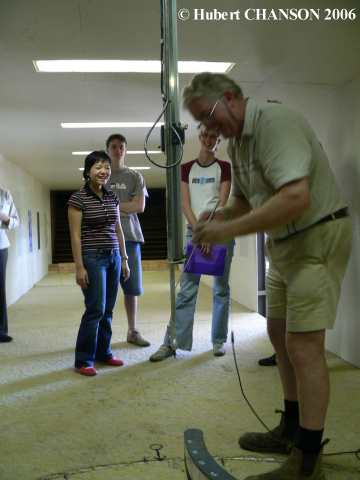
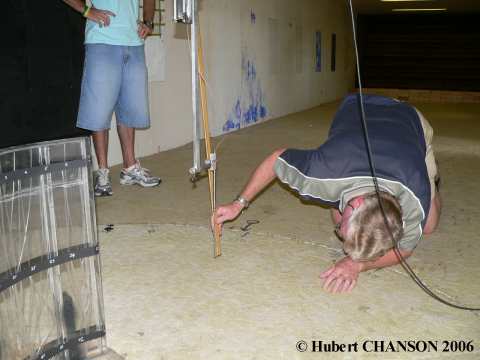
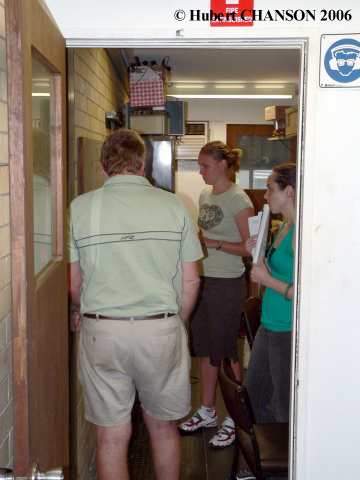

2005 Wind tunnel
projects
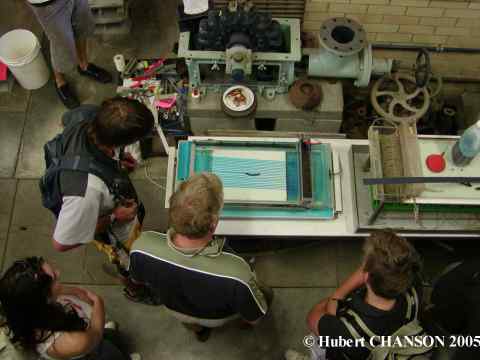
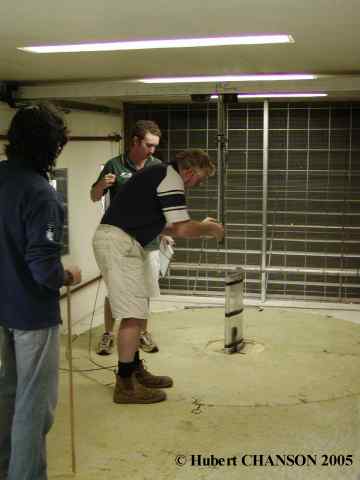
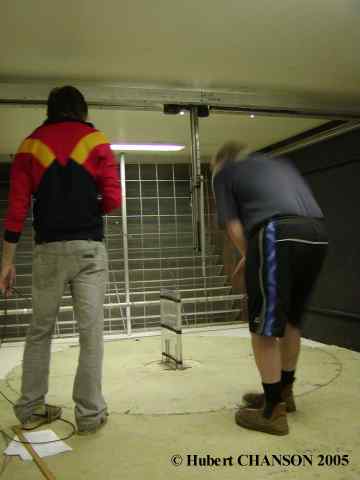
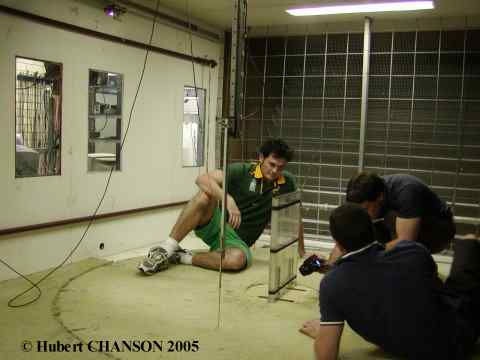
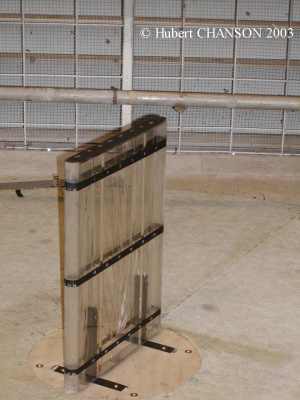
Useful Links
Rating : [***] = superb, must see - [**] = excellent
General
Rivers Seen
from Space [**]
Structurae,
International Database and Gallery of Structures [**]
Qanats
:
an historical account [*]
Gallery of Photographs in Fluid Mechanics,
Hydraulic & Environmental Engineering and Engineering History
ASME
Database (American Society of Mechanical Engineers)
Foundation Cousteau
(see Alcyone)
The Formal Water Garden
Unesco Photobank
[**]
E-Fluid
Basic Fluid Dynamics
Gallery
of photographs in fluid dynamics by Mark Kramer [**]
Software : 2DFlow Plus (ZIP file) by Dynaflow (For teaching purposes only)
(Alternative site : http://www.dynaflow-inc.com/Software.htm or http://www.dynaflow-inc.com/DFlow/2dflow.htm)
Computational Fluid Dynamics
Potential
flow : superposition of elementary flows (University of Syracuse)
FEAT-Flow
(Excellent site with numerical flow visualisations) [**]
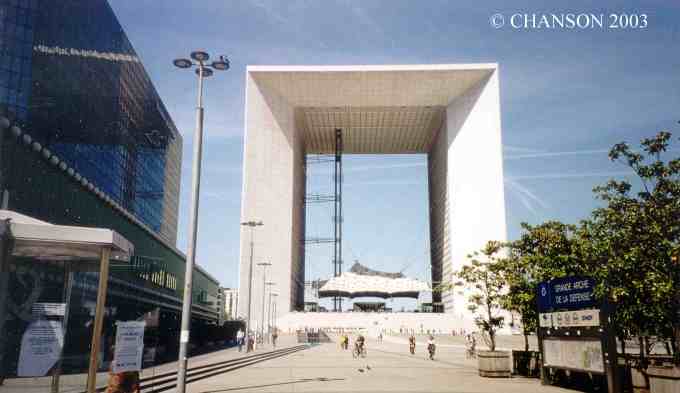
Atmosphere
The
Morning Glory : amazing waves [**]
Mixing and dispersion
Coastal Ocean Modeling
at the USGS Woods Hole Field Center
EPA
Multimedia projects (USA) (Chesapeake Bay, Gulf of Mexico)
Mixing in estuarine zones
Inlets
on-line (USACE) [**]
Estuaries in South Africa [*]
Atmospheric Fluid
Dynamics
Morning
Glory - Amazing Waves [**]
Climate Information
(Australia)
Aircraft and aerodynamics
Airbus
Industry (go to Images, Photo gallery) [**]
Dassault
Aviation
USAF
Thunderbirds [**]
USN
Blue Angels [**]
Deep sea currents / Oceanic circulation
University of Washington PALACE Floats {http://flux.ocean.washington.edu/}
[**]
Scripps Dive into Science {http://aquarium.ucsd.edu/divein/divein.html}
TOPEX/Poseidon Mission {http://topex-www.jpl.nasa.gov/}
[***]
The Scripps Institution of Oceanography {http;//www.sio.ucsd.edu/}
Woods Hole Oceanographic Institution (WHOI) {http://www.whoi.edu/home/}
Coastal engineering
Gallery of photographs of coastal processes {http://www.uq.edu.au/~e2hchans/photo.html#Coastlines}
Great Barrier Reef, National Geographic {http://www.nationalgeographic.com/ngm/0101/feature2/index.html}
Oceanic turbulence around Japanese islands {http://nisidriv.cv.noda.sut.ac.jp/www/eddy.htm}
Photographs of tidal bores {http://www.uq.edu.au/~e2hchans/photo.html#Tidal
bores, mascaret, pororoca}
The tidal bore of the Seine river {http://www.uq.edu.au/~e2hchans/mascaret.html}
Whirlpools {http://www.uq.edu.au/~e2hchans/whirlpl.html}
Tsunamis {http://www.uq.edu.au/~e2hchans/photo.html#Tsunami}
Tidal links {http://www.linden-software.com/links.html}
Hydrology/Weather
National Weather Service Office of Hydrology
El Niño Information in
California
Extreme
reservoir siltation in Australia
River engineering
IAHR Medialibrary
The tidal
bore of
the Seine river
Artifical
river habitats and fish passes (photographs)
Flood
plains (photographs)
Weirs
and small dams on the Kent river (UK) [**]
Computational modelling in
hydraulics
Softwares
Hydrochan
(TM)
[**] Gradually-varied flows (1D) (for
teaching purposes ONLY)
US Army Corps of Engineers HEC
Softwares
Water quality issues
Chicago Calumet waterway: sidestream aeration
cascades
Petit-saut dam (French Guyana): aeration
cascade
Petit-Saut
dam : photographs,
dam
details
The Aral sea
Photographs {http://www.uq.edu.au/~e2hchans/photo.html#Flood
plains}
NASA Earth Observatory (1)(2)
TETHYS (Kazakhstan) and JRAK (Japan)
Ecological expedition {http://www.kz/gallery/aral/tpict1.html}
Trip in Uzbekistan {http://www.fantasia.net/errol/}
Australian
Bureau of Meteorology
Goulburn-Murray
Water
Hydro-Electric Corporation
(Tasmania)
Murray-Darling Basin Commission
NSW Department of Land and
Water Conservation
QLD Department of Natural
Resources [Water, Storages]
[Glossary
of terms]
Extreme
reservoir siltation in Australia
Resources
CFD Resources Online
A
list of fluid mechanics related http servers
Structurae,
International Database and Gallery of Structures [**]
University of Queensland Library
Measurement
systems : SI Units and significant figures
Reprints
of Research Papers
Internet
resources in Hydraulic Engineering : rubber dams, tidal bore,
reservoir siltation, MEL culverts ...
ICEnet: The Institution of Civil
Engineers, UK Homepage
Japan Society
of Civil Engineers
ASCE - American Society of
Civil Engineers Homepage
ASME - American Society of
Mechanical Engineers
ENPC - Ponts et Chaussees
IAHR homepage (International
Association for Hydraulic Research)
US Geological Survey
Civil Engineering Resources on the Internet (GuideMe.com)
Utility
Video Player MPEG
Utilities -
TUCOWS
Utilities
- CNet
Hubert CHANSON
is a Professor in Civil Engineering,
Hydraulic Engineering and Applied Fluid Mechanics, at
the University of Queeensland,
Australia. His research interests include design of hydraulic
structures, experimental investigations of two-phase flows, coastal
hydrodynamics, water quality modelling, environmental management and
natural resources. He has been an active consultant for both
governmental agencies and private organisations. His publication record
includes over 550 international refereed papers and his work was cited
over 2,700 times since 1990. Hubert Chanson is the
author
of several books : "Hydraulic
Design
of
Stepped Cascades, Channels, Weirs and Spillways" (Pergamon, 1995), "Air Bubble Entrainment in Free-Surface
Turbulent Shear Flows" (Academic
Press, 1997), "The Hydraulics of
Open Channel Flow : An Introduction" (Butterworth-Heinemann, 1st
edition 1999, 2nd editon 2004),
"The Hydraulics of Stepped Chutes and
Spillways" (Balkema, 2001), "Environmental Hydraulics of
Open Channel
Flows" (Butterworth-Heinemann,
2004), "Applied
Hydrodynamics: an Introduction of Ideal and Real Fluid Flows" (CRC Press, 2009),
and "Tidal Bores,
Aegir, Eagre, Mascaret, Pororoca: Theory And Observations" (World
Scientific, 2011). He
co-authored two further books "Fluid
Mechanics
for Ecologists" (IPC Press,
2002) and "Fluid Mechanics for Ecologists. Student Edition" (IPC, 2006). His textbook "The
Hydraulics of Open Channel Flows : An
Introduction" has already been translated into Spanish (McGraw-Hill Interamericana)
and Chinese (Hydrology Bureau of Yellow River Conservancy
Committee), and the second
edition was published in 2004. In 2003, the IAHR
presented him with the 13th Arthur Ippen
Award for outstanding
achievements in hydraulic engineering. The American Society of Civil
Engineers, Environmental and Water Resources Institute (ASCE-EWRI)
presented him with the 2004 award for the Best Practice paper in the
Journal of Irrigation and Drainage Engineering ("Energy
Dissipation and Air Entrainment in
Stepped Storm Waterway" by Chanson and Toombes 2002). Hubert
Chanson edited further several books : "Fluvial,
Environmental and
Coastal Developments in Hydraulic
Engineering" (Mossa, Yasuda & Chanson 2004, Balkema), "Hydraulics.
The Next
Wave" (Chanson & Macintosh 2004, Engineers
Australia), "Hydraulic
Structures: a
Challenge to Engineers and Researchers" (Matos & Chanson 2006, The University of Queensland), "Experiences
and Challenges in Sewers:
Measurements and Hydrodynamics" (Larrate & Chanson 2008,
The University of Queensland),
"Hydraulic
Structures: Useful
Water Harvesting Systems or Relics?" (Janssen & Chanson 2010,
The University of Queensland),
"Balance and
Uncertainty: Water in a Changing World" (Valentine et al. 2011, Engineers Australia).
He chaired the Organisation of the 34th
IAHR World Congress held in Brisbane, Australia between 26
June and 1 July 2011.
His Internet home page is http://www.uq.edu.au/~e2hchans.
He also developed a gallery of photographs website {http://www.uq.edu.au/~e2hchans/photo.html}
that received more than 2,000 hits per month since inception.
This page was visited xxxx times since
27-11-2008.
Last updated on 28/09/2011.
Back to Prof Hubert CHANSON's Home Page
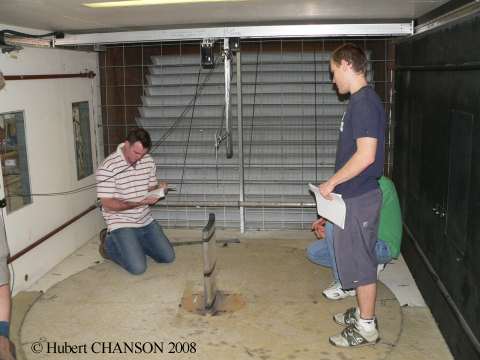
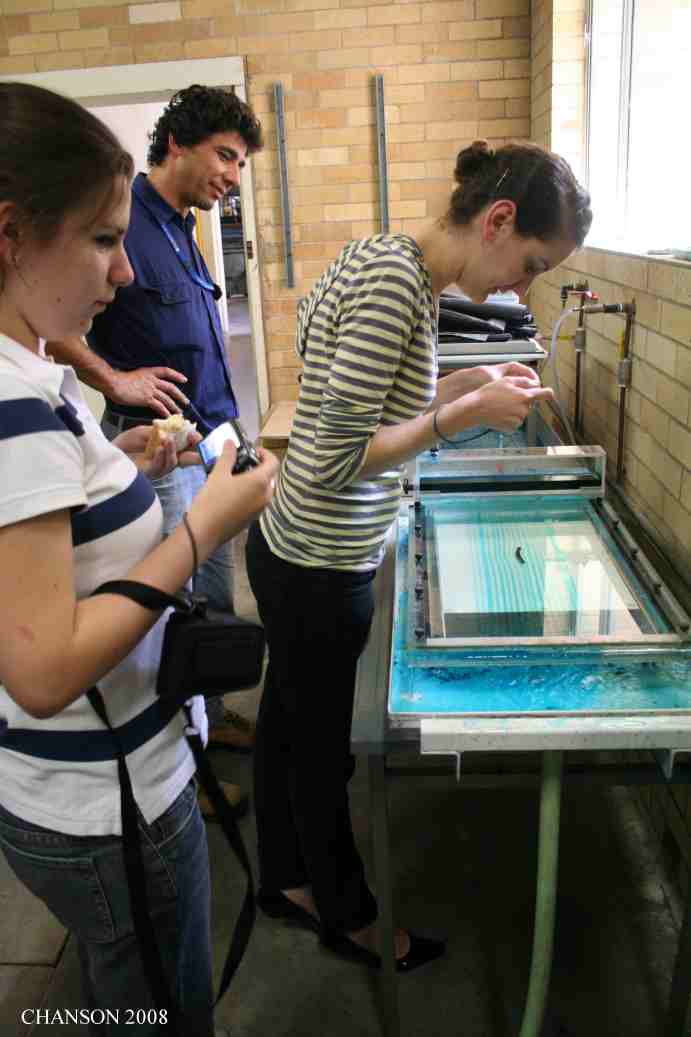
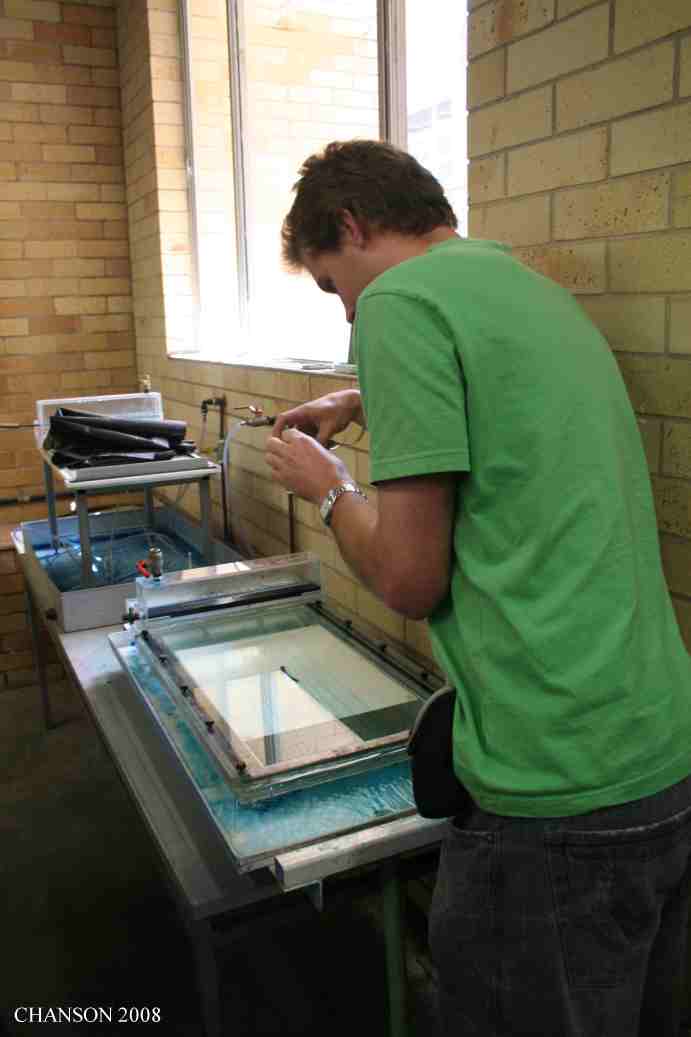
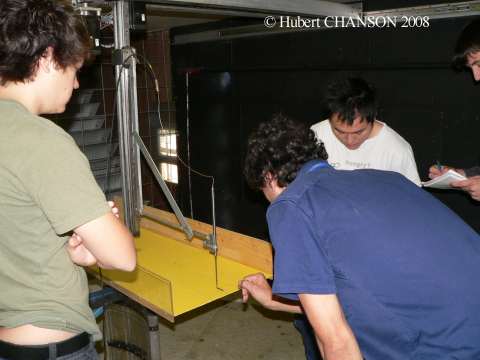








 Author's
website : http://www.uq.edu.au/~e2hchans/
Author's
website : http://www.uq.edu.au/~e2hchans/


